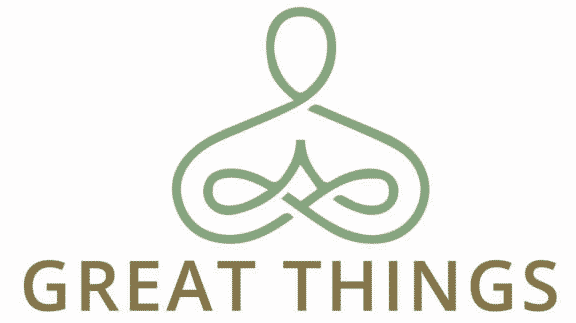Malware and Security Threats are everywhere
With the recent issues for GoDaddy’s Managed WordPress hosting servers, it highlighted the risks on not having proper website security in place. In this article, you will learn how you can proactively defend your site and how to recover from a site outage.
GoDaddy’s Advanced Security Packages with Firewall
One of the critical packages that is available is the security package. Choosing the right package may seem daunting, but here is a summary to help you decide. You can purchase or add these to your account from my online store.
Standard Security $5.99/mo. This is better than nothing. It is more reactive than proactive. It will identify when hackers are attempting to access your site and will alert you to a Malware infection. However, it only provides 1 clean up per year. You will need to upgrade to the Advanced if you need it more than once a year.
- Protects one website.
- Firewall prevents hackers.
- SSL certificate included in firewall.
- Malware scanning.
- Annual site cleanup and remediation.
Advanced Security $19.98/mo. ** Recommended. The Advanced Security package offer an active, real time firewall. This will block hackers and malware before your site is impacted. It also has unlimited, same day clean up and malware removal services.
- Protects one website.
- Firewall prevents hackers.
- SSL certificate included in firewall.
- Malware scanning.
- Unlimited site cleanups.
- DDoS protection, and Content Delivery Network (CDN) speed boost.
- 25 GB of secure backup.
Premium Security $29.99/mo. . With all of the features of the Advanced Security, there is an additional level of protection from DDos attacks, integrated CDN and an extremely fast repair time (less than a few hours.
- Protects one website.
- Firewall prevents hackers.
- SSL certificate included in firewall.
- Malware scanning.
- Unlimited site cleanups.
- DDoS protection, and Content Delivery Network (CDN) speed boost.
- Prioritized cleanup and repair.
- 200 GB of secure backup.
Domain Privacy and Protection
This is often overlooked by new businesses and sites just starting out. However, it is an important aspect of your digital security to consider. When you register your domain, you must provide information for contacts, the business and other identifying parts. This information is the Internet Corporation for Assigned Names and Numbers, or ICANN, require Hosting Companyies to gather contact information for the person or business registering the domain name, known as the registrant or domain holder. This information includes name, phone number, address and other details, which is reported on the WHOIS directory.
This is public information. Unfortunately, spam bot, hackers and other things can use it. For example, many spam bots collect emails and contact information from these records. Once they have that, you will see a tremendous amount of spam begin, as well as telemarketers. And those are the worst!
Keeping your domain contact information private helps prevent unwanted spam calls and emails, and makes sure you’re in control of what information is publicly available. You can add a few different layers of privacy and protection with the following services. You can upgrade to one of these plans from your GoDaddy Dashboard > My Products > Domains >Manage.
- Basic Privacy Protection (or Basic Protection): Regulations vary around the globe, but GoDaddy automatically hides your name, street address, phone number and email address in the GoDaddy WHOIS directory for every registered domain name. Based on current ICANN regulations, your state/province, country and organization name (if you have one) will still be displayed.
- Full Domain Privacy & Protection (or Full Protection): Instead of masking your contact information on the WHOIS directory, Full Protection substitutes your contact information with proxy details. You’ll get a private email address that can be used to filter, block or forward emails to your main address. You’ll also get Ownership Protection to protect your domain from hijacking and accidental loss due to an expired credit card. Full Protection prevents certain domain actions from being completed without additional verification, such as transferring away, cancelling or changing contact information.
- Ultimate Domain Protection & Security (or Ultimate Security): This option includes all the features of Full Protection, along with our Website Security Basic. This product protects your domain and website with automatic malware scans and continuous security monitoring. It also monitors search engine blocklists to ensure your domain reputation is protected. If Website Security finds an issue on your site, we’ll notify you as soon as it’s found, along with the next steps you need to take.
DNS Protection Options
DNS or Domain Name System, can be considered to be the “phone book” of the internet. Computers use 1’s and 0’s to communicate. When you type in “greatthingsllc.com” the Domain Name System holds the record that says what the IP address where that particular site is located. More information is available, click here to read about it. DNS records contain a bunch of information, such as :
- A record: The primary DNS record used to connect your domain to an IP address that directs visitors to your website.
- Subdomain: Any DNS record that’s on a prefix of your domain name such as blog.coolexample.com. A subdomain can be created using an A record that points to the IP address (the most common), a CNAME that points to a URL, or even an MX record.
- CNAME: A type of record that also adds a prefix to your domain name and is sometimes referred to as a type of subdomain. A CNAME can’t point to an IP address. It can only point to another domain name or URL address. For example, you can create a CNAME for store.coolexample.com that points to a different URL, such as a store built with Shopify.
- MX record: Manages your email address and makes sure your email messages get to your inbox. Different email services use different MX records, and email with GoDaddy is automatically set up for you.
- TXT record: Allows you to verify domain ownership and setup email sender policies.
- SPF record: A type of TXT record that lets you set up email sender policies. This is an advanced type of DNS record.
- NS record: Contains information about your nameservers. Use these records to identify which nameservers you should use if your domain is not registered with GoDaddy, but you want to manage your DNS with us. This is an advanced custom DNS record.
There are premium services available for DNS management and security. One of the simple things you can do to protect yourself is to have strong passwords on all of your accounts. A DNS issue will bring down your site and email services if they are hacked. Typically, they are fairly secure but are a point of concern in your overall online security plan.
Ready to level up your online security?
If you are ready to improve your online security, let’s talk! You can schedule a time to connect, just click here to set up a time that works for you.


